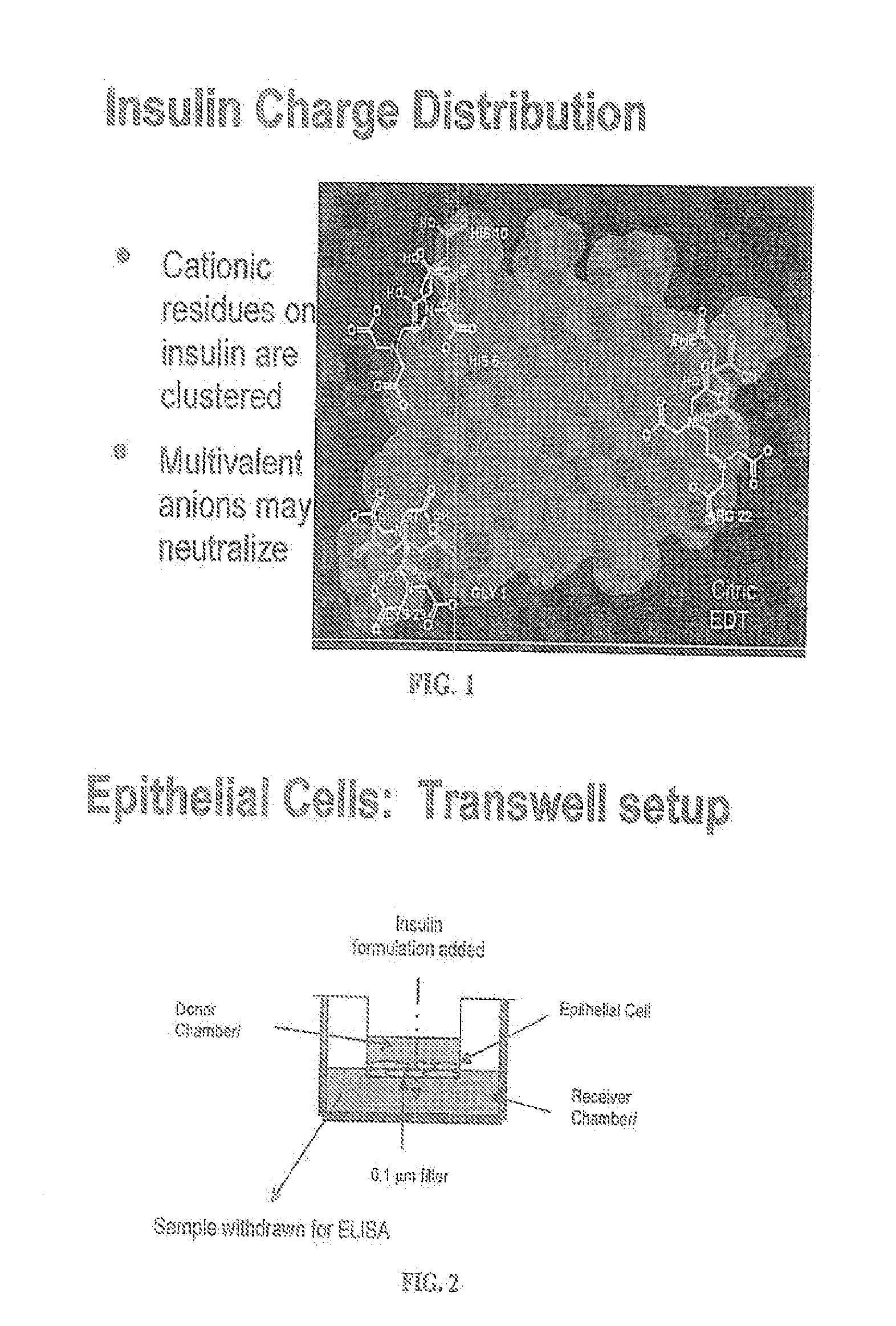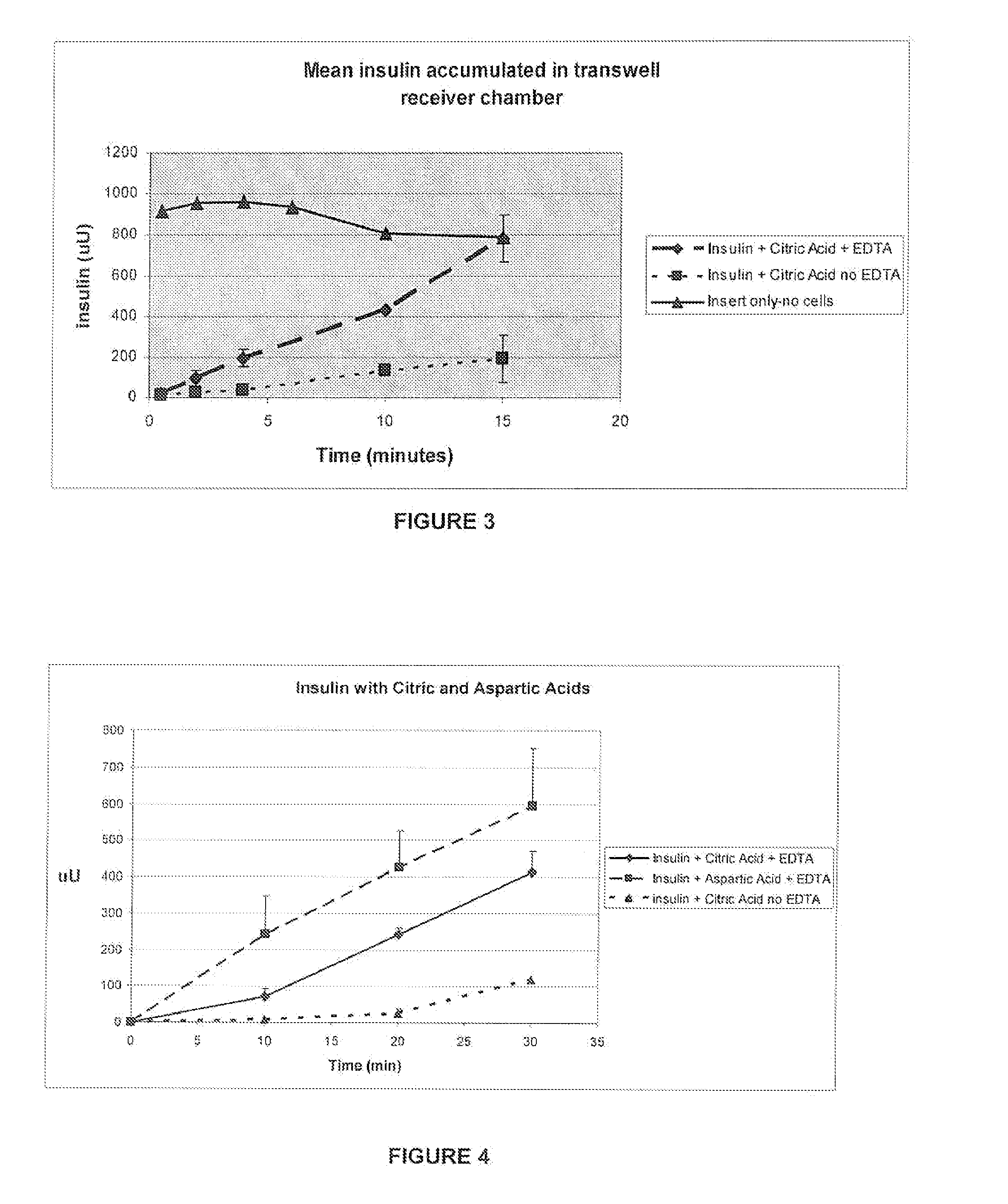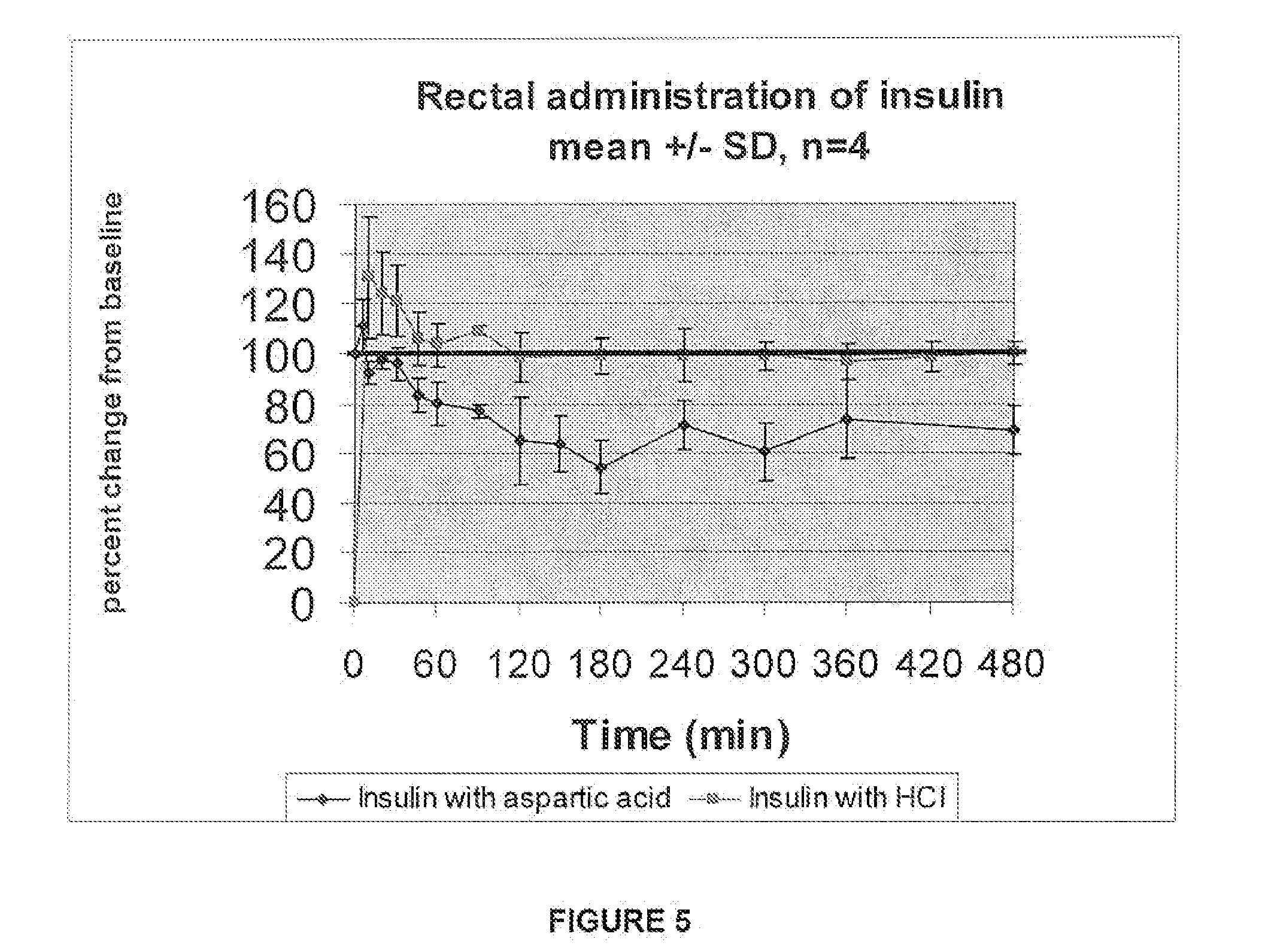Rapid Acting and Long Acting Insulin Combination Formulations
a technology of rapid acting and long-acting insulin, which is applied in the direction of algae medical ingredients, peptide/protein ingredients, peptide sources, etc., can solve the problems of ineffective use of edta when used with adipic acid, oxalic acid or hcl, and achieves rapid acting, rapid acting, and reduced insulin.
- Summary
- Abstract
- Description
- Claims
- Application Information
AI Technical Summary
Benefits of technology
Problems solved by technology
Method used
Image
Examples
example 1
Effect of EDTA on Insulin Absorption Through an Epithelial Cell Multilayer Device
[0063]Purpose: To demonstrate in vitro the effect of EDTA in the presence of citric acid on absorption of insulin through an epithelial cell multilayer.
Materials and Methods
[0064]Two saline solutions were mixed containing 1 mg / ml insulin, 2 mg / ml EDTA and 2 mg / ml citric acid (“solution 1”) or 1 mg / ml insulin and 2 mg / ml citric acid (“solution 2”). The control (no cells) contained EDTA, citric acid and insulin. Immortalized human epithelial cell line cultures were seeded on transwell plates (FIG. 2). Cells were grown to confluence and tested for membrane integrity using trans-epithelial resistance. At time zero, the fluid in the top chambers of the transwell plates was replaced with 0.5 ml of insulin solution (i.e. solution 1 or solution 2). Two plates with solution 1, two plates with solution 2 and one plate with the control solution (no cells) were tested simultaneously. The lower chamber of each plate...
example 2
Effect of Aspartic and Citric Acid on Absorption of Insulin Through an Epithelial Cell Multilayer
[0069]Purpose: Demonstrate that polyacids have different affinities for insulin with EDTA as shown by an increase in absorption through cells.
[0070]Methods and Materials:
[0071]Oral epithelial cells that have been seeded on transwell plates were used to determine the rate of absorption through the cell multilayer, as described in example 1. Insulin (1 mg / ml) was dissolved in either aspartic (0.2 mg / mL) or citric acid (2 mg / ml) and EDTA (2 mg / ml) was added to both. Insulin with citric acid (no EDTA) was used as a control. The pH of the solution was approximately 3.5 to 4, and physiological saline was present to provide an isotonic environment for the cells (0.85% NaCl, sufficient to produce a range of 280-310 mOsm as measured by freezing point depression, Microsmette, Precision systems, Natick, Mass.). Samples were taken from the receiver chamber and assayed by ELISA (Linco Corp.) for hum...
example 3
Effect of Acid on Absorption of Insulin from Polymeric Gel Administered Rectally to Rats
[0075]Purpose: To observe effect of acids and EDTA in an in vivo model
Material and Methods
[0076]Samples
[0077]Insulin was incorporated into a gel consisting of PVA (0.5%), Carbopol (2.7%), CMC (0.005%) and PEG 400 (0.14%), glycerin (0.14%), and EDTA (0.005%) by blending with insulin / aspartic acid or insulin / HCl. The final concentration of insulin in insulin / aspartic acid gel was 0.7 and insulin concentration in insulin / HCl gel was 1.7 mg / g.
[0078]Rat Rectal Study:
[0079]Rats were fasted overnight and were cleared of all fecal matter with a warm water enema. Then the gel formulation was inserted into the rectum and the rat's blood glucose was monitored over an 8 hour time period.
[0080]Results
[0081]The results are shown in FIG. 5 as a percent glucose lowering from baseline comparing insulin with aspartic acid and EDTA to insulin with HCl and EDTA. The results show significantly better lowering of glu...
PUM
| Property | Measurement | Unit |
|---|---|---|
| pH | aaaaa | aaaaa |
| volume | aaaaa | aaaaa |
| volume | aaaaa | aaaaa |
Abstract
Description
Claims
Application Information
 Login to View More
Login to View More - R&D
- Intellectual Property
- Life Sciences
- Materials
- Tech Scout
- Unparalleled Data Quality
- Higher Quality Content
- 60% Fewer Hallucinations
Browse by: Latest US Patents, China's latest patents, Technical Efficacy Thesaurus, Application Domain, Technology Topic, Popular Technical Reports.
© 2025 PatSnap. All rights reserved.Legal|Privacy policy|Modern Slavery Act Transparency Statement|Sitemap|About US| Contact US: help@patsnap.com



